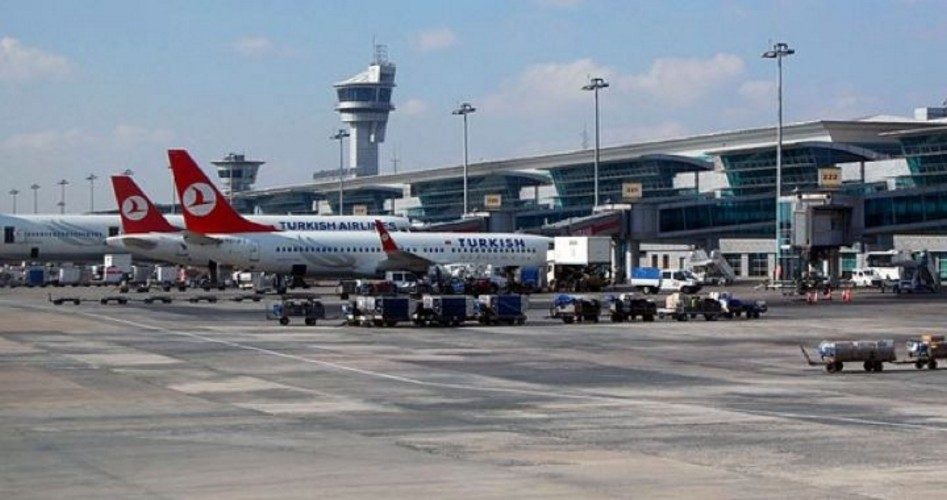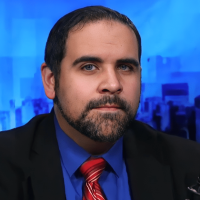
Following the horrifying June 28, 2016 terrorist attack at Istanbul’s Atatürk International Airport in Turkey (shown) that left 45 people dead (not including the three attackers) and an additional 239 people injured, new information has surfaced suggesting that the terror plot mastermind, Akhmed Chatayev, may have been an agent provocateur of the West.
Shortly after the attack, the media quickly associated ISIS with the attacks. However, the three attackers were not Arabic or from the Middle East, but rather from the former Soviet Union. According to unnamed Turkish sources, as reported by the BBC, one of the attackers was apparently Russian, with the other two being from Uzbekistan and Kyrgyzstan.
The country of the origins of the attackers was also confirmed to Reuters by an unnamed Turkish government official.
The Turkish pro-government newspaper Yeni Safak identified the mastermind behind the attack as one-armed Chechen terrorist Akhmed Chatayev.
Nicknamed “Akhmed One-Arm,” the International Business Times reports that Chatayev claims his arm was chopped off while in prison in Russia. Other sources claim he lost his arm in combat fighting against Russian forces in the Second Chechen War.
When Chatayev was released from a Russian prison in 2003, he, his wife, and three children migrated to Austria as refugees. Eventually, he obtained Austrian citizenship and a passport allowing him to easily travel throughout Europe. He was repeatedly arrested in Sweden, Ukraine, and Bulgaria, but always let go by European Union and/or government officials.
According to Swedish court documents, in 2008, Chatayev was sentenced to 16 months in prison for purportedly attempting to smuggle bullets, a silencer, two handguns, and an automatic weapon. Pleading innocence, Chatayev accused Russian security agents of trying to discredit him and planting the arms and ammunition. Instead, he insisted that he was merely driving to Norway to visit friends and go fishing together. After only 10 months in prison, Chatayev was released early from his 16-month sentence.
Chatayev was arrested again in 2010, this time in Ukraine, where he was to be extradited to Russia, but was freed from custody when the European Court of Human Rights obliged the Ukrainian government to not follow through on the extradition.
In 2011, Bulgarian officials again released him, after detaining him there for extradition to Russia. Under Western protection, Chatayev was never sent back to Russia. Instead he ended up in Syria in 2013, under the name Akhmed al-Shishani, as a commander in ISIS swearing allegiance to the Islamic State’s emir Abu Bakr al-Baghdadi.
However new information has surfaced suggesting that Chatayev may have been an agent of the West, which could explain his seemingly fortunate draw of the get out of jail free card during his numerous arrests in Europe. Irakli Sesiashvili, the chairman of Georgia’s parliamentary committee on defense and national security, recently told reporters that Chatayev also had a Georgian passport and that he had been an agent of the Georgian Intelligence Service (Georgia’s equivalent to the CIA or Russian KGB/FSB).
“Chatayev, unfortunately, was a security agent of the former government. He was getting instructions from Saakashvili and Giorgi Lortkipanidze. He had a Georgian operational passport and had been fulfilling security assignments in various countries. He was going on business trips and was getting a salary. He had been working for Saakashvili,” Sesiashvili told Georgia’s Rustavi 2 TV.
An ally of President George W. Bush and the West, Mikheil Saakashvili was the president of Georgia during Russo-Georgian War of 2008 and remained in power until 2013. On May 30, 2015, Saakashvili became the governor of Odessa Oblast, a province in southwestern Ukraine on the coast of the Black Sea.
Of Chatayev, Sesiashvili further told Rustavi 2 TV that he was used as an “intermediary” between the Georgian government and an unidentified paramilitary group of 17 armed men, initially believed to be either Chechen fighters or Russian Islamists from Dagestan, during the Lapota incident of 2012. It was the following year that Chatayev officially and publicly swore his allegiance to ISIS.
While Turkish authorities, the media, and both Western and Russian government officials claim that ISIS was responsible for the deadly June 28 terrorist attack, this raises the question of not just who was behind the attack, but who was or is behind Akhmed Chatayev? While Chatayev may be a leader of ISIS, he appears to have been an asset of the West or Western ally Georgia at the very least. However, in the midst of Chatayev’s tangled history the following questions should be raised: If he was in fact originally incarcerated in Russia, why was he released and allowed to migrate with his full family to Austria? If Chatayev was truly a menace or threat to Russia, which he may or may not have been, then would it not have been logical for Russia to have kept him incarcerated or have prevented him from leaving the country rather than letting him go and then pursuing futile efforts to have him extradited back?
At the same time, questions as to why Austria allowed him, as a known Chechen combatant, to immigrate into the country and eventually gain citizenship under the initial protected status of a “refugee” would also be fair to ask. Or the fact that he was released multiple times following multiple arrests, even under suspicion of arms trafficking with his arrest in Sweden. Chatayev’s identity and murky tangled past certainly raises more questions than answers.
While purportedly being a former Georgian asset, the complex web of his past may point to an even larger Washington-Brussels-Moscow Axis that is ostensibly at odds with each other (i.e., East vs. West) but united in the common goal of establishing a centralized one-world order. The fight against “Islamic Jihad” would seem to be the common denominator in the foreign polices of both Putin’s Russia and the West, paving the way for increasing military cooperation and partnership in shaping the world affairs in the Middle East. It remains to be seen what further information, or disinformation, about Chatayev may become public in the aftermath of the horrific terrorist attacks. One thing is certain however, this incident will serve as just another pretext for more foreign intervention, wars in the Middle East, and the further erosion of liberty at European and U.S. airports all in the name of defeating ISIS as part of the perpetual “War on Terror.”




